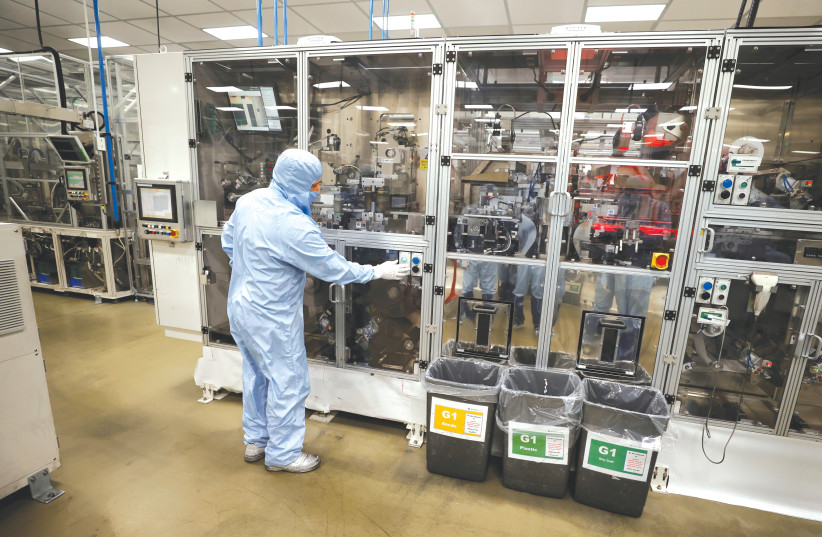Britain needs more battery factories for electric cars
[ad_1]
But the headline-grabbing money and deadline, which is several years earlier than many other countries, still leaves it behind the European Union’s drive to create a supply chain and far behind China. , the leader in batteries for electric vehicles (EV).
With its 2030 deadline looming followed by its 2035 cutoff for hybrids, Britain needs more battery factories, and fast.
Yet even Nissan’s plans for a 9 gigawatt-hour (GWh) battery plant in Britain, hailed by the government when it was announced in July, are overshadowed by two factories under construction in Germany alone, the plant 50 GWh from Tesla near Berlin and 40 GWh from Volkswagen. factory near Wolfsburg.
“We got to the party quite late,” said Douglas Johnson-Poensgen, managing director of UK-based Circulor, who has worked with Volvo Cars and others on building sustainable supply chains.
The Department for Business, Energy and Industrial Strategy (BEIS), at the heart of Britain’s electric vehicle investment campaign, says it is ensuring Britain remains a world leader in the ‘automobile industry.
“We remain committed to securing UK giga factories and continue to work with investors to advance plans for the mass production of the batteries needed for the next generation of electric vehicles,” a spokesperson said in a statement sent by email.
Meanwhile, the EU is moving ahead to catch up with China and transform its auto industry, a major employer across the bloc, including heavyweights in Germany and France.
The bloc, which proposed an effective ban on sales of new gasoline and diesel cars from 2035, allocated 2.9b. euros ($ 3.4 billion) from 12 EU states to support new battery factories. European climate group Transport & Environment says the EU has 38 factories planned or under construction, many of which benefit from other support measures from the EU or individual governments.
The block has identified 42 companies, including the American company Tesla and the German BMW, for specific roles in the supply chain and the battery life cycle, ranging from the supply of raw materials to the production of cells or recycling.
Last year, the European Commission proposed laws to ensure sustainable battery production, while Germany passed a battery life cycle supply chain law, with factories to stay close to them. from each other, thus helping to comply with environmental rules and contain costs. Batteries are heavy objects to transport.
Britain has yet to meet this target, although BEIS has said it is working to implement green targets for the auto industry and will release an infrastructure strategy this year, including on recharging. vehicles and proposals on road transport emissions.
But manufacturers say Britain is not moving fast enough.
“The UK government needs to wake up and invest in the supply chain,” said Matt Windle, managing director of UK sports car maker Lotus. “We have the knowledge, we have the people, we just need the supply chain. “
Guy Winter, a Fasken partner who has advised the government in the past, said Britain needed a “battery czar” to ensure the industry rallied, a role played in the EU by European Commission Vice-President Maros Sefcovic since 2017.
Winter said failing to provide enough support, whether in Britain or the EU, would leave the race to China, which makes about three-quarters of the world’s electric vehicle batteries.
QUICK TRANSITION
Benchmark Mineral Intelligence (BMI) predicts that Britain will need at least 175 GWh of battery cell capacity by 2035 to power around 3 million fully electric vehicles. For now, he estimates Britain is far behind the pace, with just 56.9 GWh by 2030.
Among the plans, Britishvolt aims to build a 30 GWh plant by 2027. BMI has only included part of it in its target because it expects the British start-up to ramp up more slowly.
Britishvolt said building a 30 GWh plant was a challenge, but a spokesperson said its 10 GWh three-phase construction strategy would help meet its target by 2027.
To avoid EU tariffs, UK-built cars must adhere to a series of rules of origin which from 2027 will include a stipulation that 70% of the battery comes from the EU or Great Britain. Brittany.
BEIS said the rules included a phase-in period.
Winter said this may not give Britain enough time. “We ended up with a period to make a transition that now seems too short,†he said.
Britain has so far managed to nurture small start-ups in the battery supply chain through projects like the Faraday Institution, which trains battery scientists and engineers, said Steven Meersman, founder from Zenobe, itself a start-up that manages batteries on large electric vehicles and extends their life through energy storage.
But Meersman said Britain does not have a unified strategy to help start-ups grow and regulate the electric vehicle chain, saying a ministry manages incentives to buy electric vehicles, while a separate regulator managed the vital deployment of charging points.
The Critical Minerals Association, an industry group, called for a “central coordinating body.”
The Advanced Propulsion Center, a government and automotive industry company, said it has received expressions of interest from more than 120 groups for projects across the battery supply chain.
But its managing director Ian Constance said the UK offer of 1b. Funding books, about half of which have been allocated so far, “will run out pretty quickly if we do a few of these projects.”
State subsidies amount to an average of 750 million euros. pounds per factory of batteries, each of which can cost between 2 and 4 b. pounds, according to industry estimates.
[ad_2]

